
Possible Meteor Outburst on 15 May 2022
On the morning of May 15, 2022, the Earth is expected to pass though a debris field created by the Apollo asteroid known as minor planet 2006GY2.

On the morning of May 15, 2022, the Earth is expected to pass though a debris field created by the Apollo asteroid known as minor planet 2006GY2.
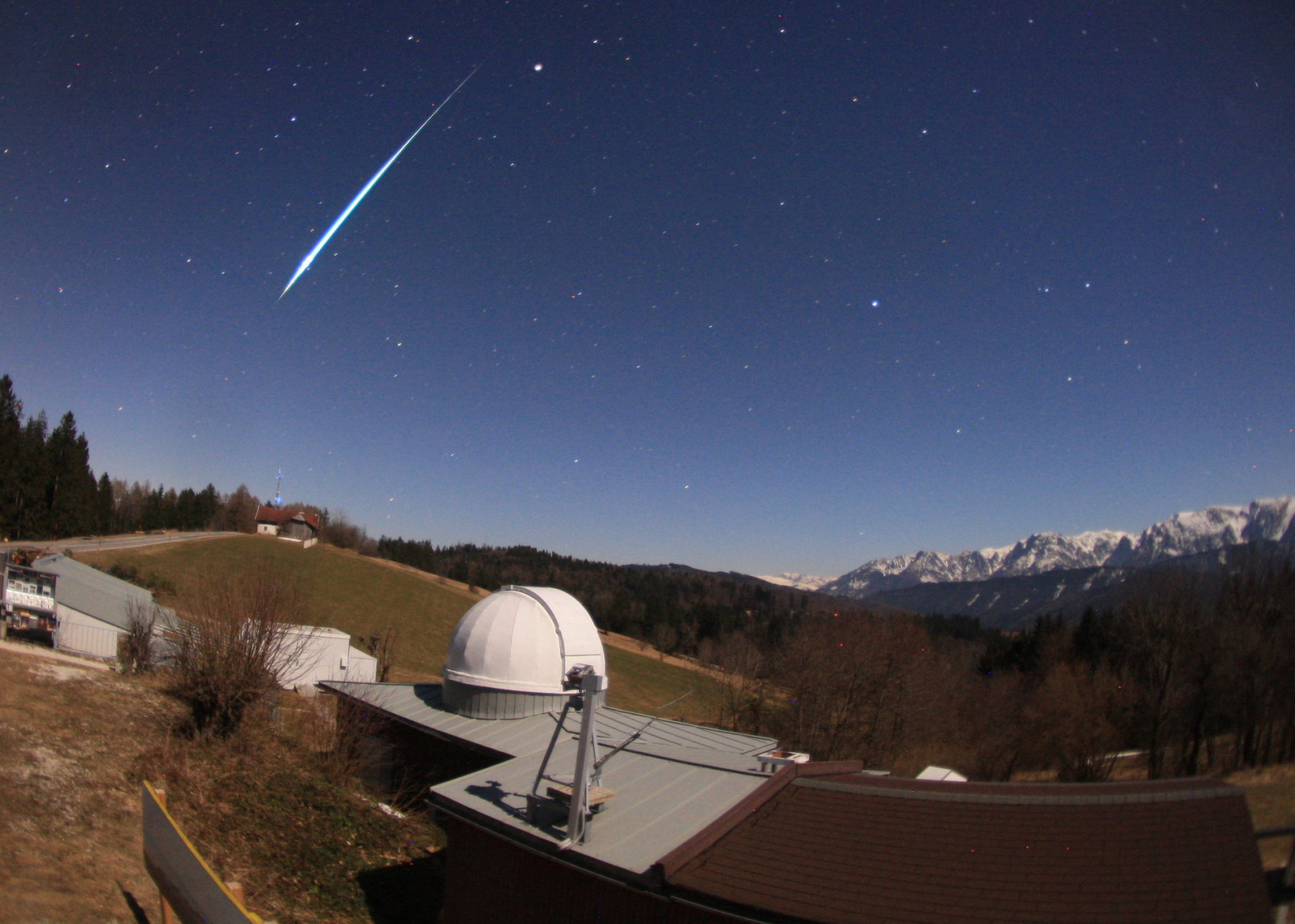
Erwin Filimon captured this fireball on March 13, 2022, at 23:40 CEST (22:40 UT) from near Weyregg am Attersee, Austria.…

A daytime fireball that occurred over Natchez, Mississippi this past Wednesday morning April 27th, 2022 resulted in a meteorite recovery
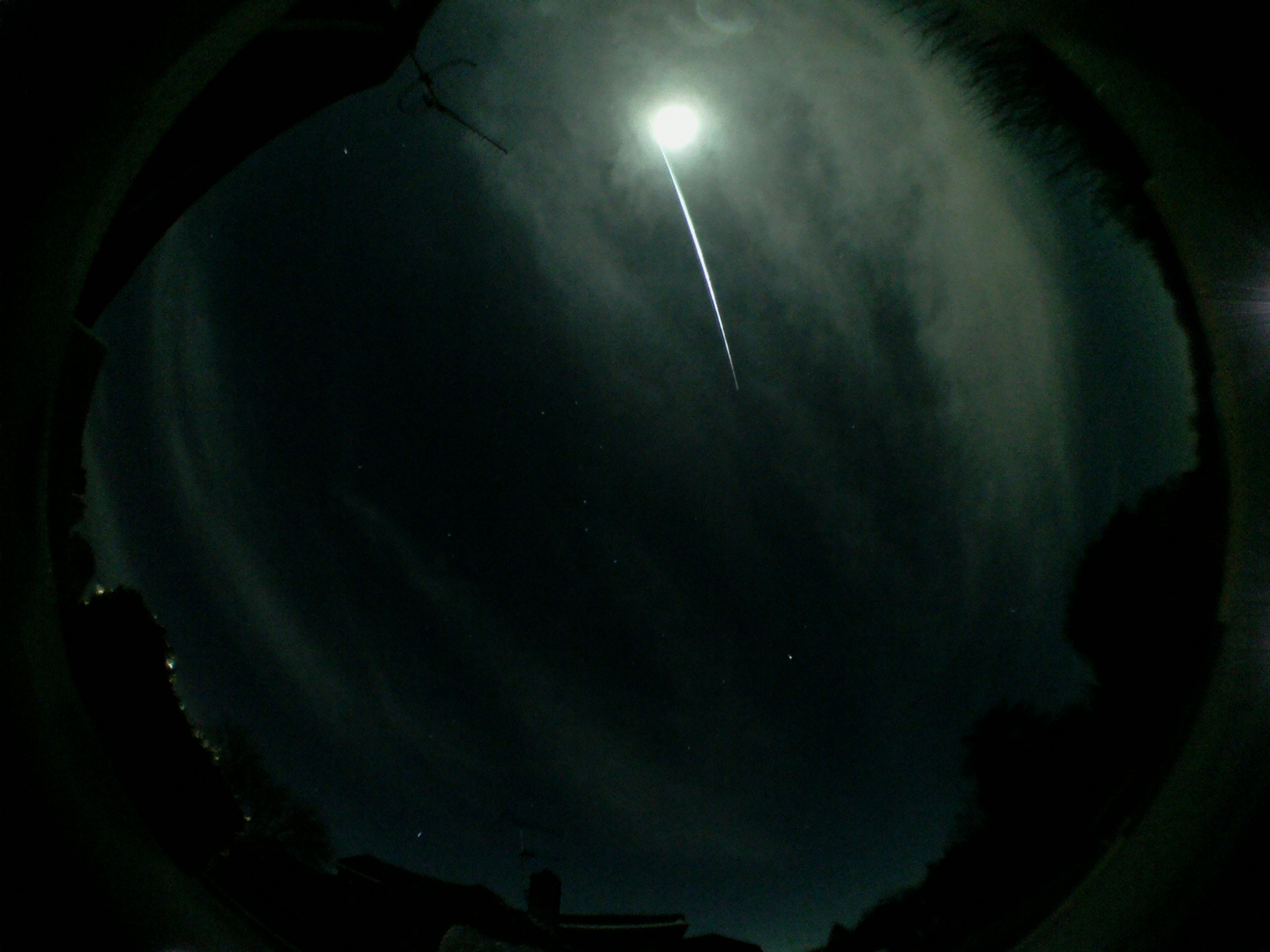
During this period, the moon reaches its new phase on Saturday April 30th. At that time the moon is located near the sun and is not visible at night. As the week progresses, the moon enters the evening sky but will not interfere with the more active morning hours as it sets long before then.

Halley’s Comet particles Every year between mid-April and the end of May, the Earth encounters the outbound debris from Halley’s…
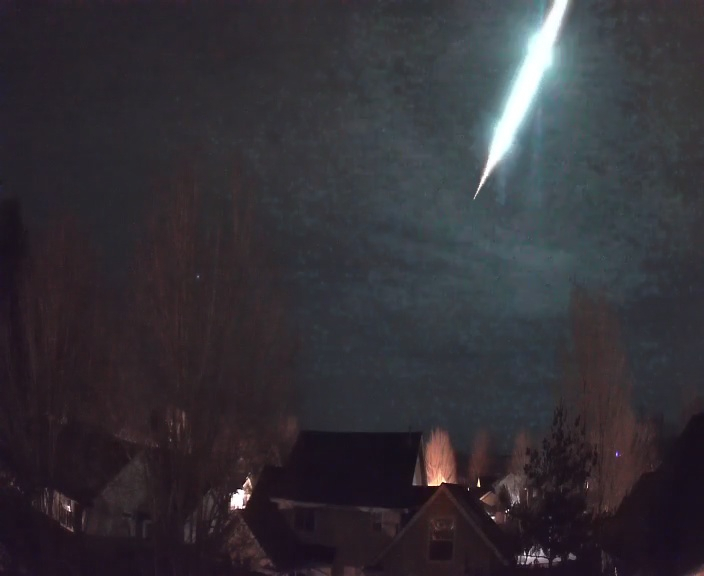
During this period, the moon reaches its last quarter phase on Saturday April 23rd. On that morning the half-illuminated moon will rise near 3:00 local daylight saving time (LDST) and will interfere with morning meteor observations the remainder of the night. As the week progresses, the moon rises later in the morning and by the end of the week the moon will rise near dawn, allowing dark skies the entire night.
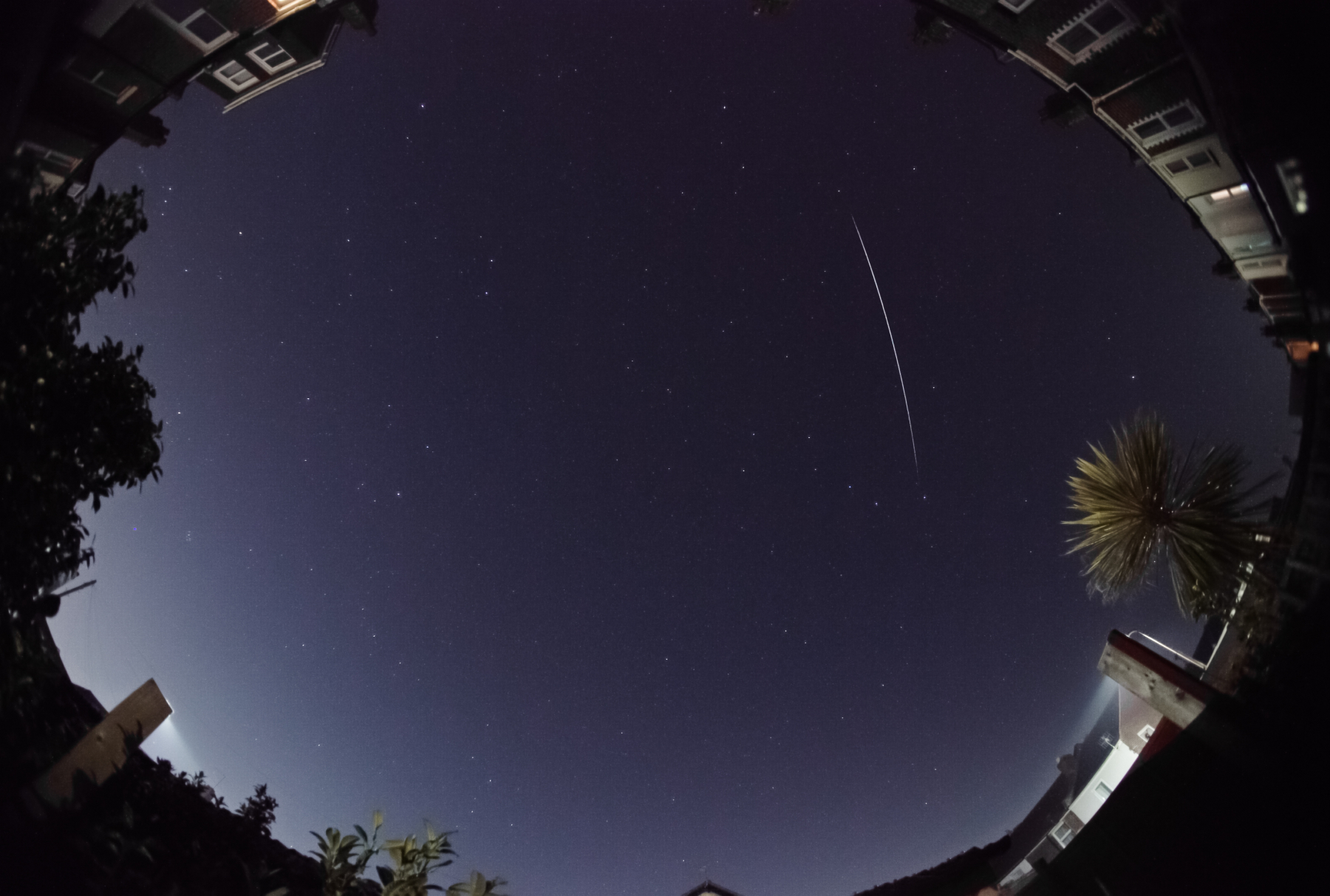
During this period, the moon reaches its full phase on Saturday April 16th. At that time the moon will lie above the horizon all night long, making meteor viewing difficult at best. As the week progresses a small window of opportunity will open up to watch meteor activity under dark skies between dusk and moon rise. Unfortunately, this time of night produces the lowest meteor activity so activity will be sparse at best.
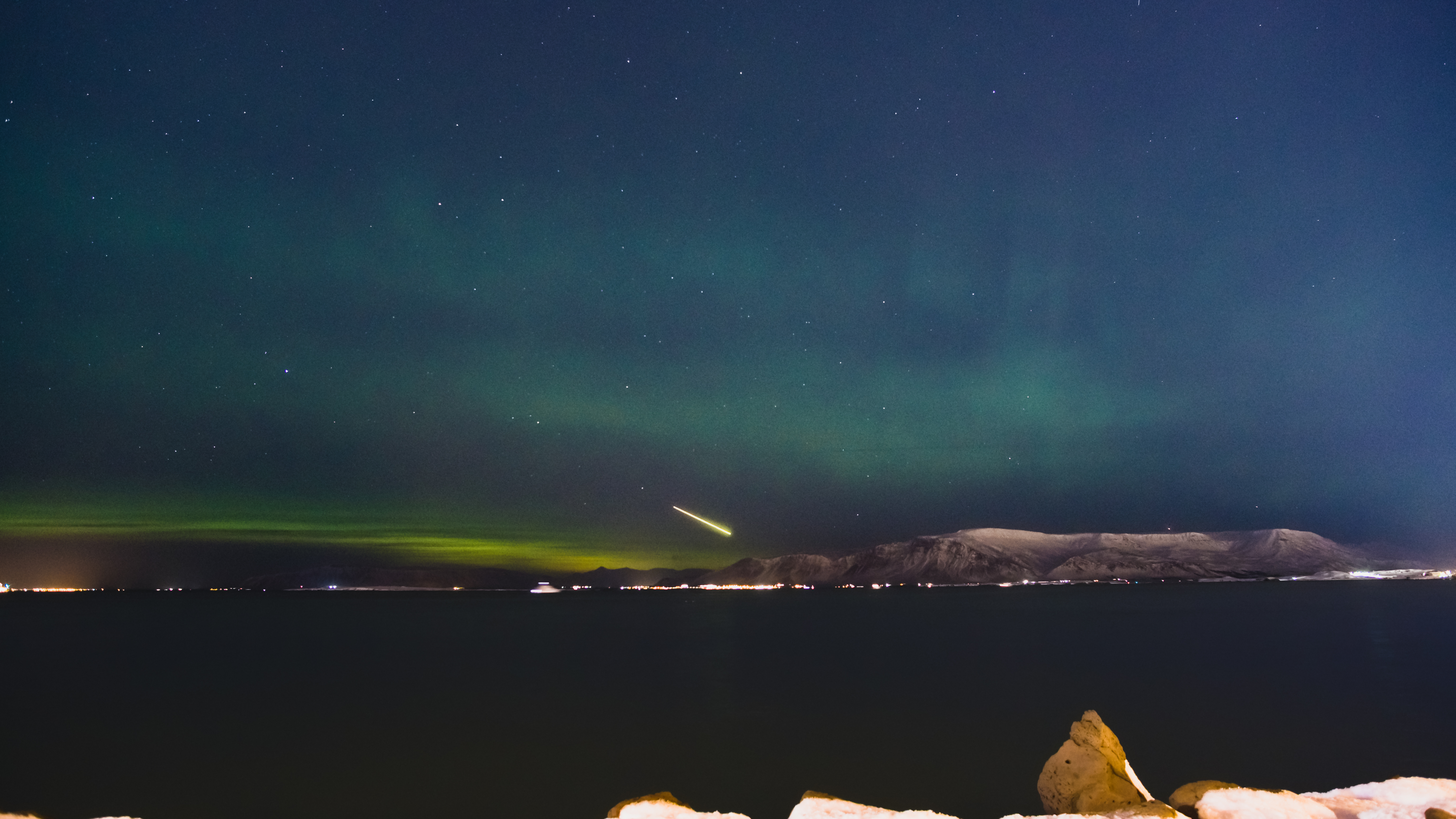
During this period, the moon reaches its first quarter phase on Saturday April 9th. The half-illuminated moon will interfere with evening and early morning meteor observations as it doesn't set until 03:00 local daylight saving time (LDST), allowing only a small remainder of the night to be free of interfering moonlight. As the week progresses, the moon sets later and later, interfering all night long by the end of the period.
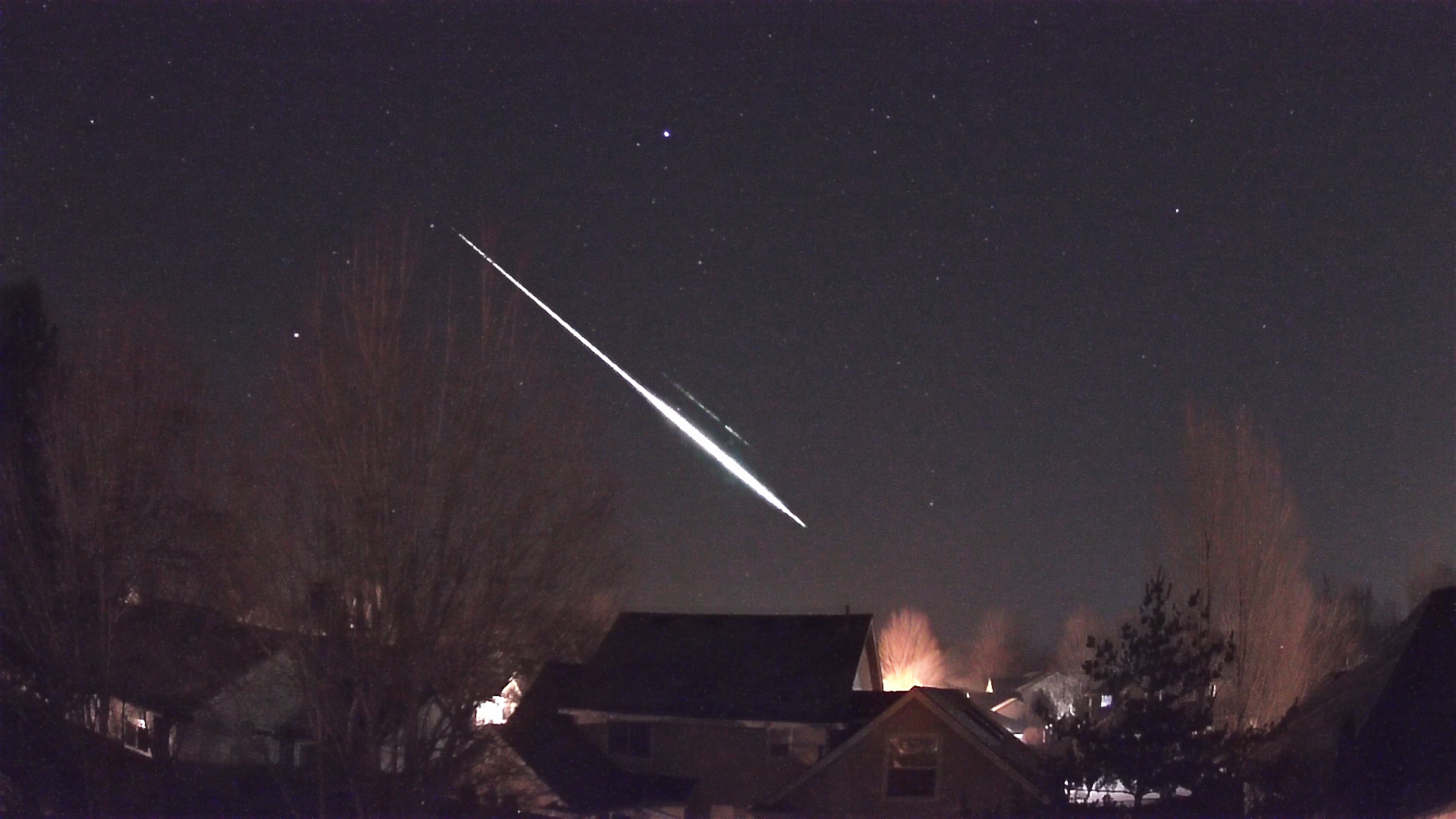
During this period, the moon waxes from a thin crescent to nearly half-illuminated. This weekend the thin crescent moon will set shortly after dusk, so no moonlight will interfere during the remainder of the night. Late in the period the evening hours have interfering moonlight, but the more active morning hours are still free from any interference.

100+ reports from 3 provinces and North Dakota
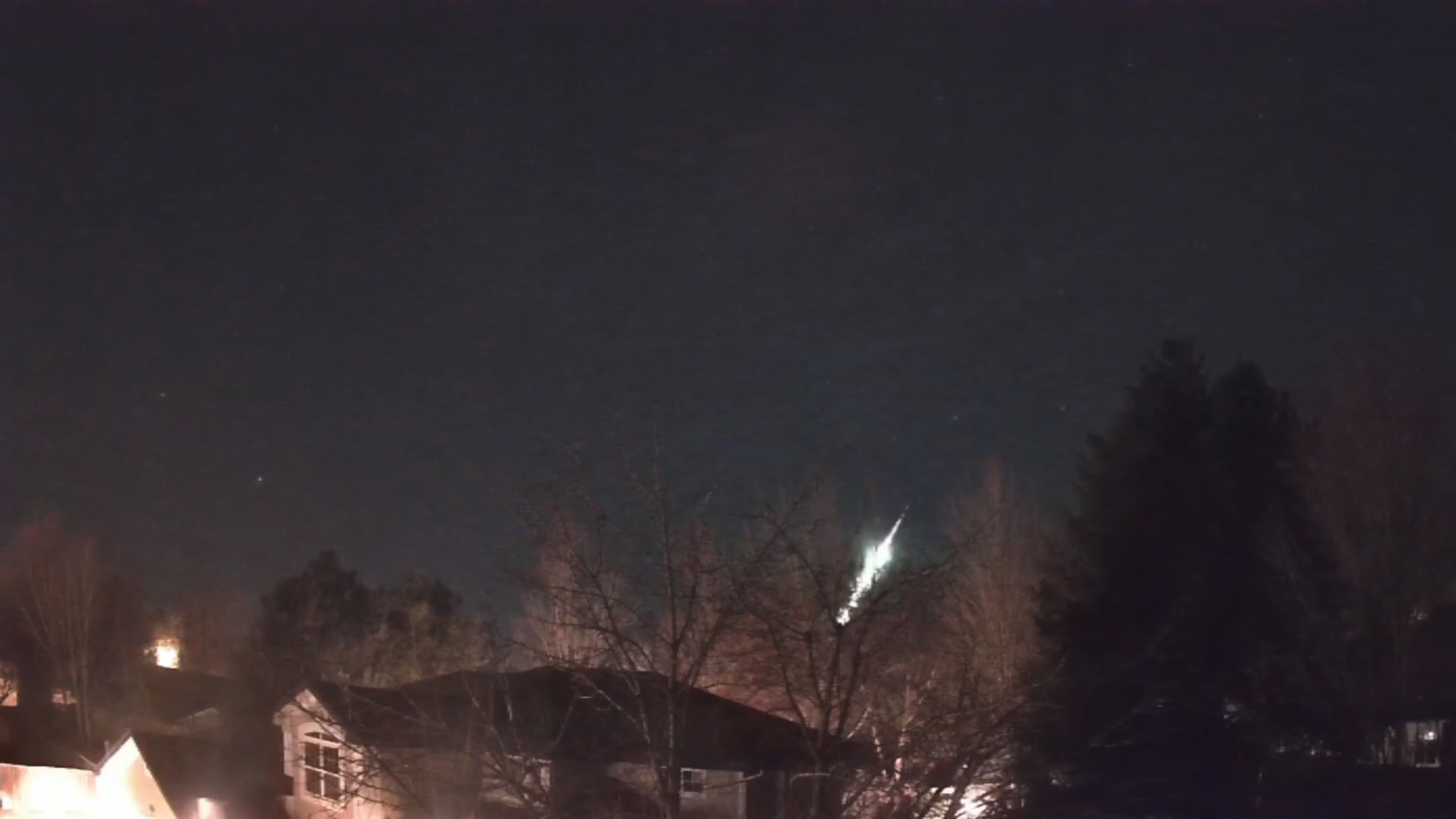
During this period, the moon reaches its new phase on Friday April 1st. At that time the moon lies near the sun and is invisible at night. This weekend the waning crescent moon will rise during the early morning hours and won’t interfere with meteor observing as long as you keep it out of your field of view.
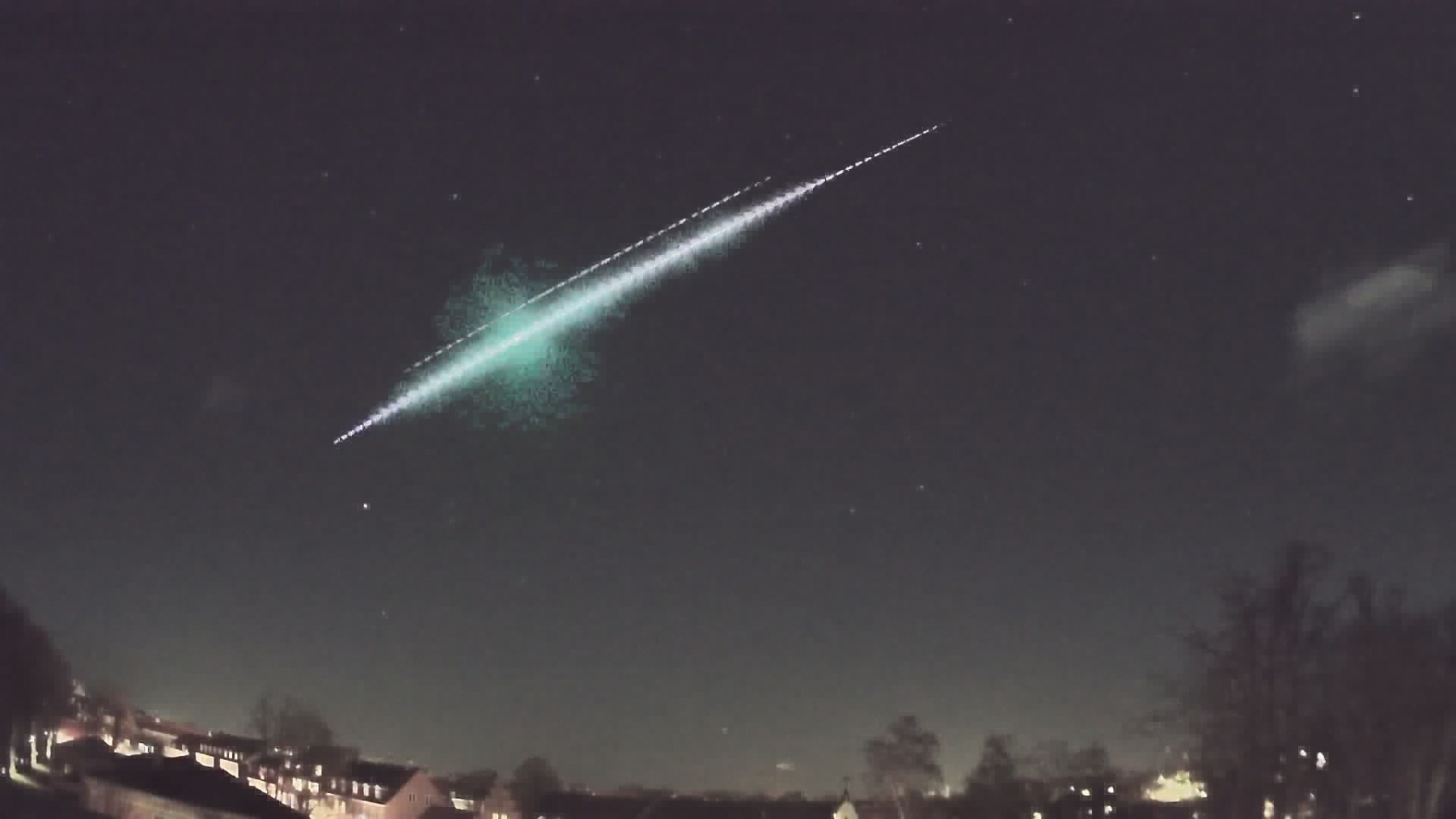
During this period, the moon wanes from nearly full to nearly half-illuminated by the end of the week. This is the worse time of the month to try and observe meteor activity as the bright moon will lie above the horizon most of the night and will obscure all but the brightest meteors.
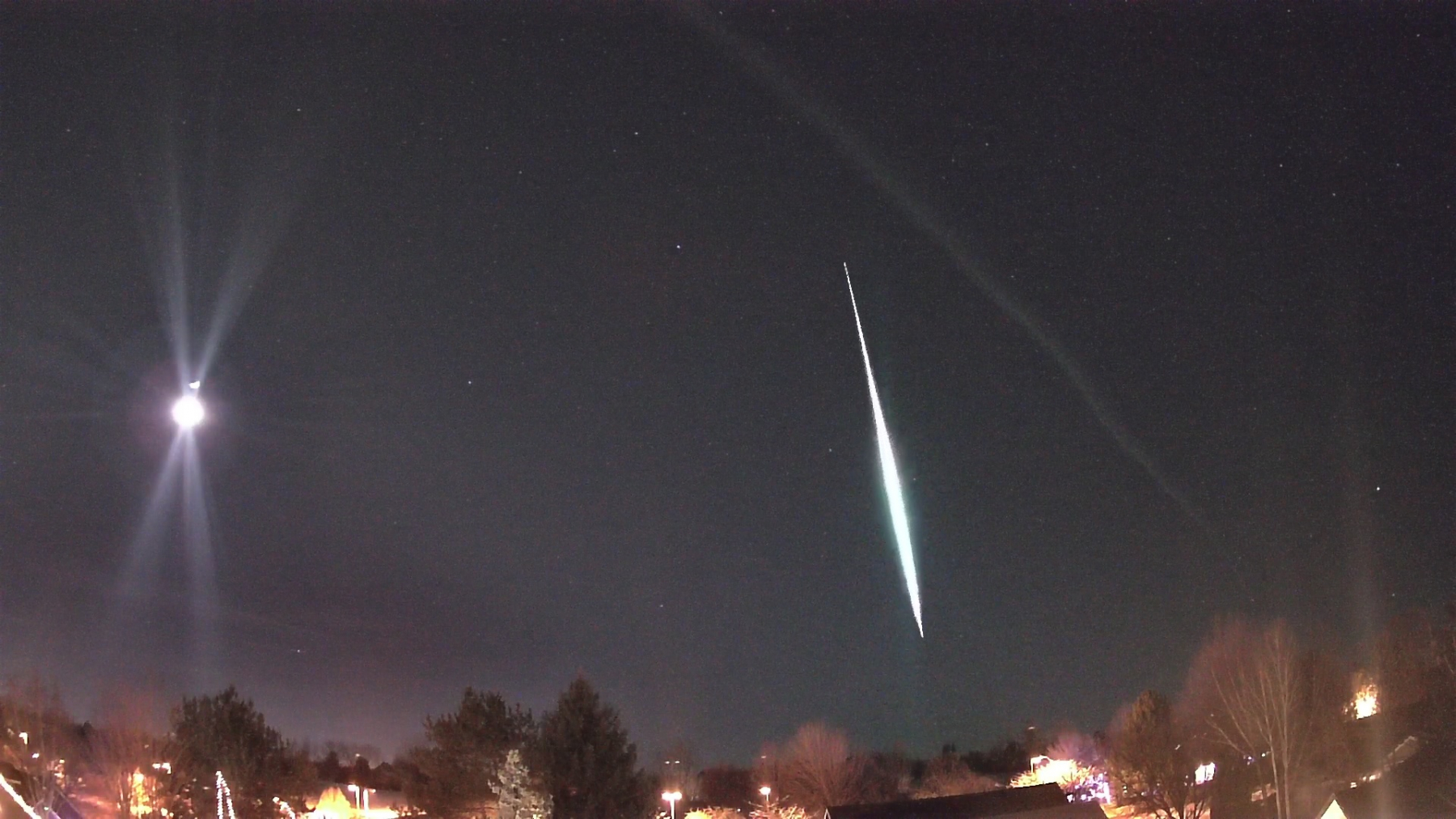
During this period, the moon reaches its full phase on Friday March 18th. At that time the moon lies opposite the sun in the sky and lies above the horizon all night long. This weekend the waxing gibbous moon will set during the early morning hours but will not interfere with meteor observing during the more active morning hours, allowing a few hours of dark sky observing prior to dawn.
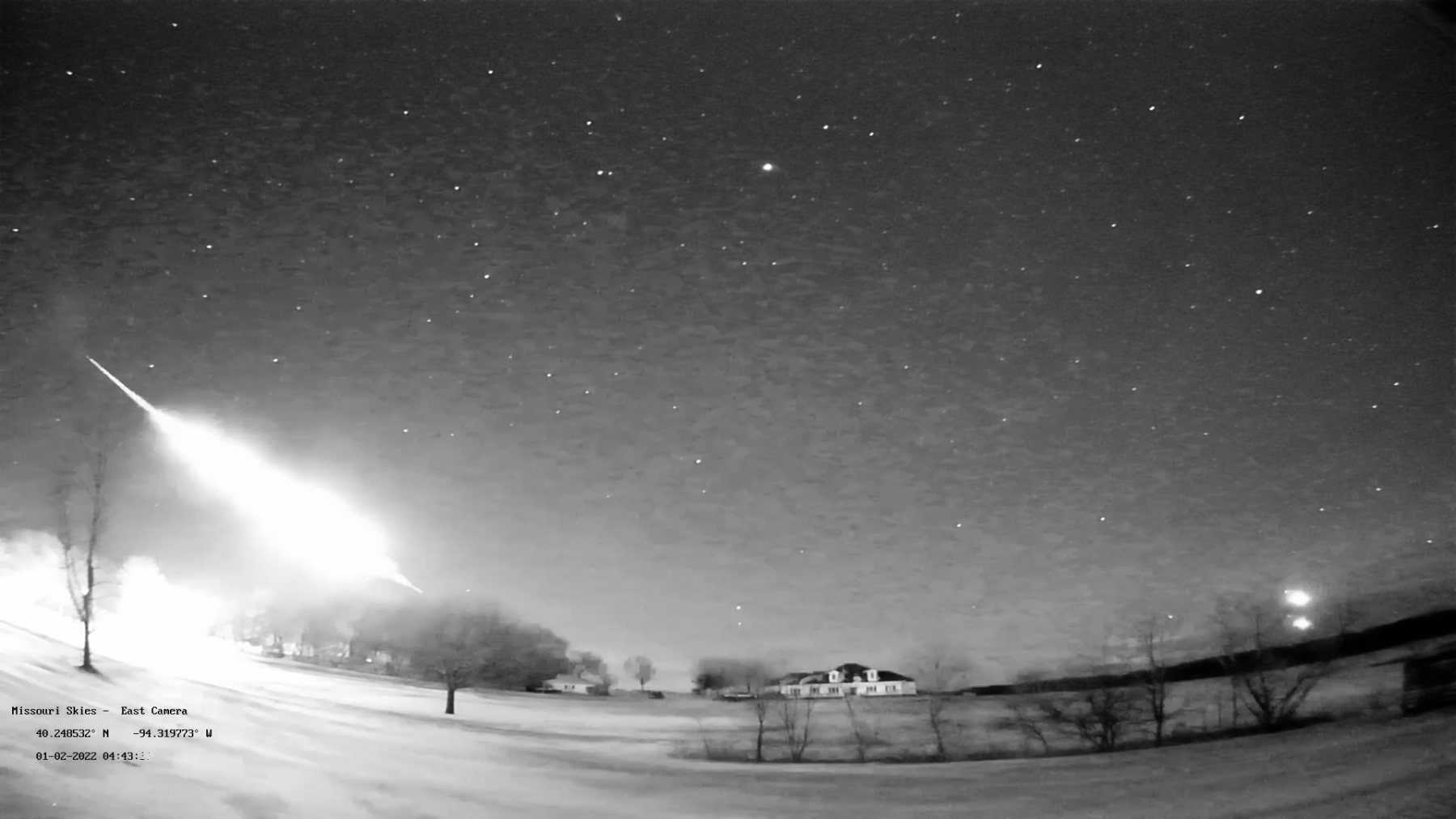
Daniel Bush captured this extremely bright fireball at 4:43 CST (10:43 UT) on January 2, 2022, from Albany, Missouri, USA.…
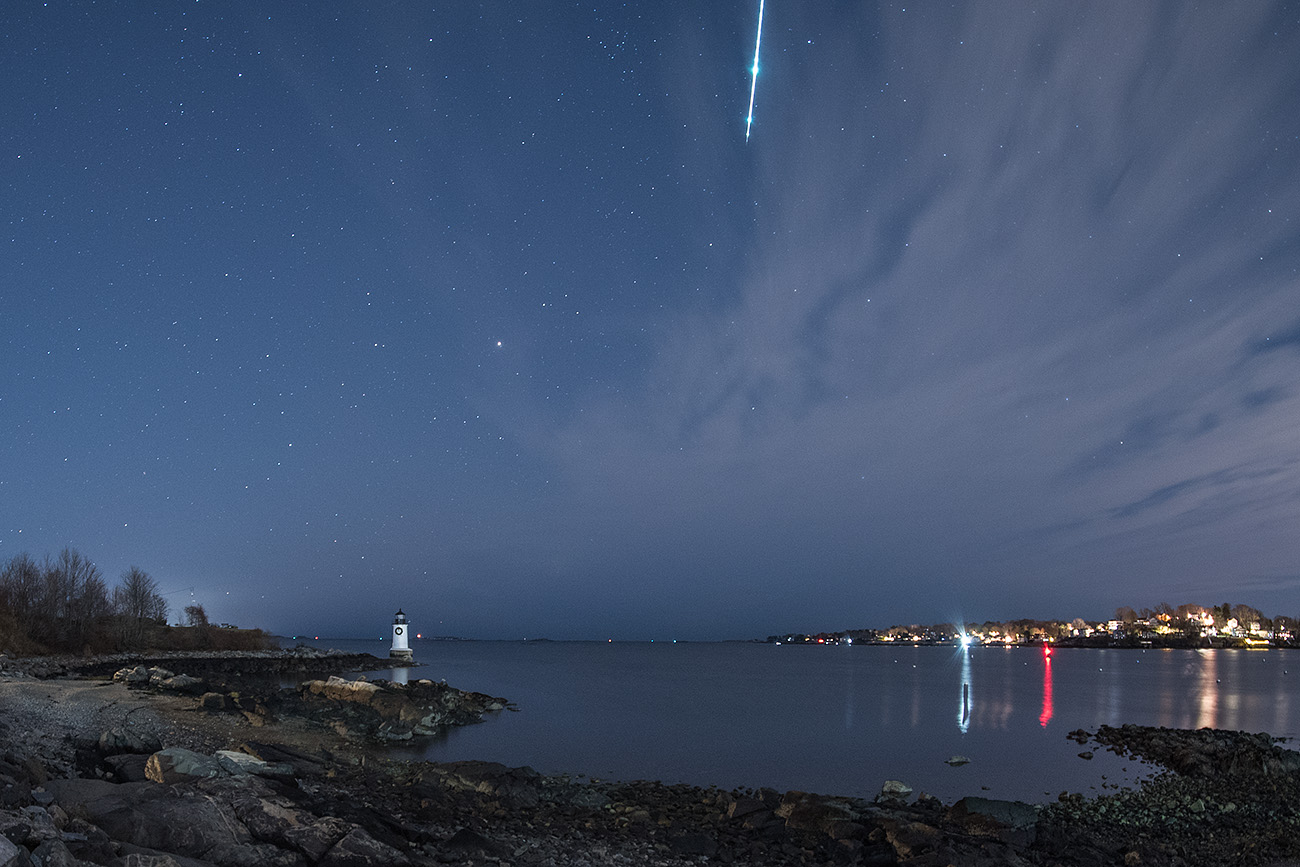
During this period, the moon reaches its last quarter phase on Wednesday February 23rd. At that time the moon lies 90 degrees west of the sun and rises near 01:00 local standard time (LST). This weekend the waning gibbous moon will rise during the evening hours and will spoil the sky for meteor viewing the remainder of the night.
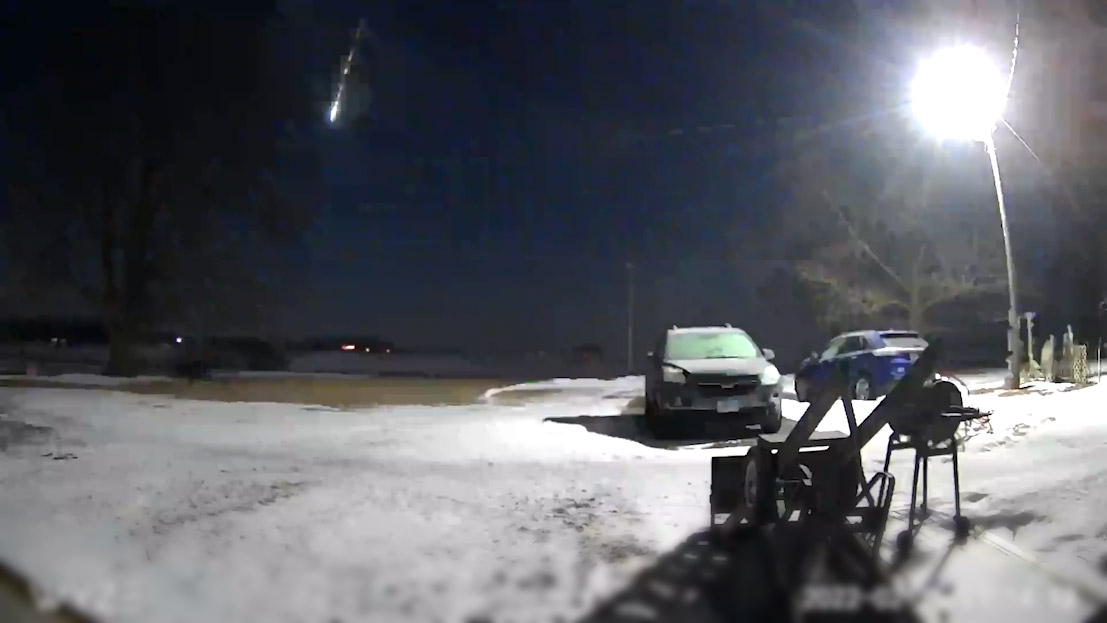
Bright fireball spotted over Illinois and Indiana on February 15th, 2022: 20+ reports and 8 videos so far.
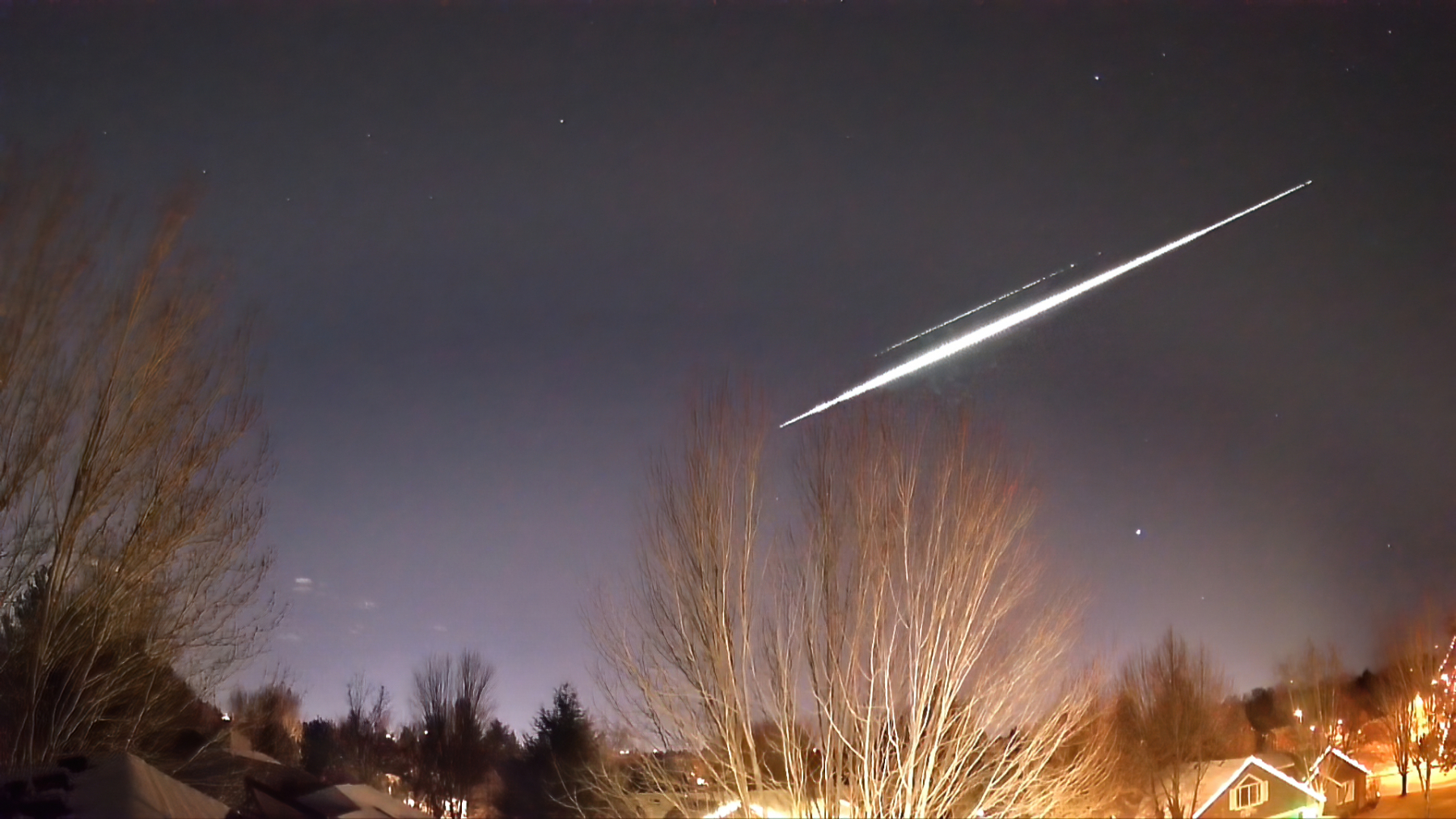
During this period, the moon reaches its full phase on Wednesday February 16th. At that time the moon lies opposite the sun and remains in the sky all night long. This weekend the waxing gibbous moon will set during the early morning hours, leaving a couple of hours to view in dark skies prior to dawn.

As in all years, the activity of meteor showers largely depends on the phase of the moon. If the moon…
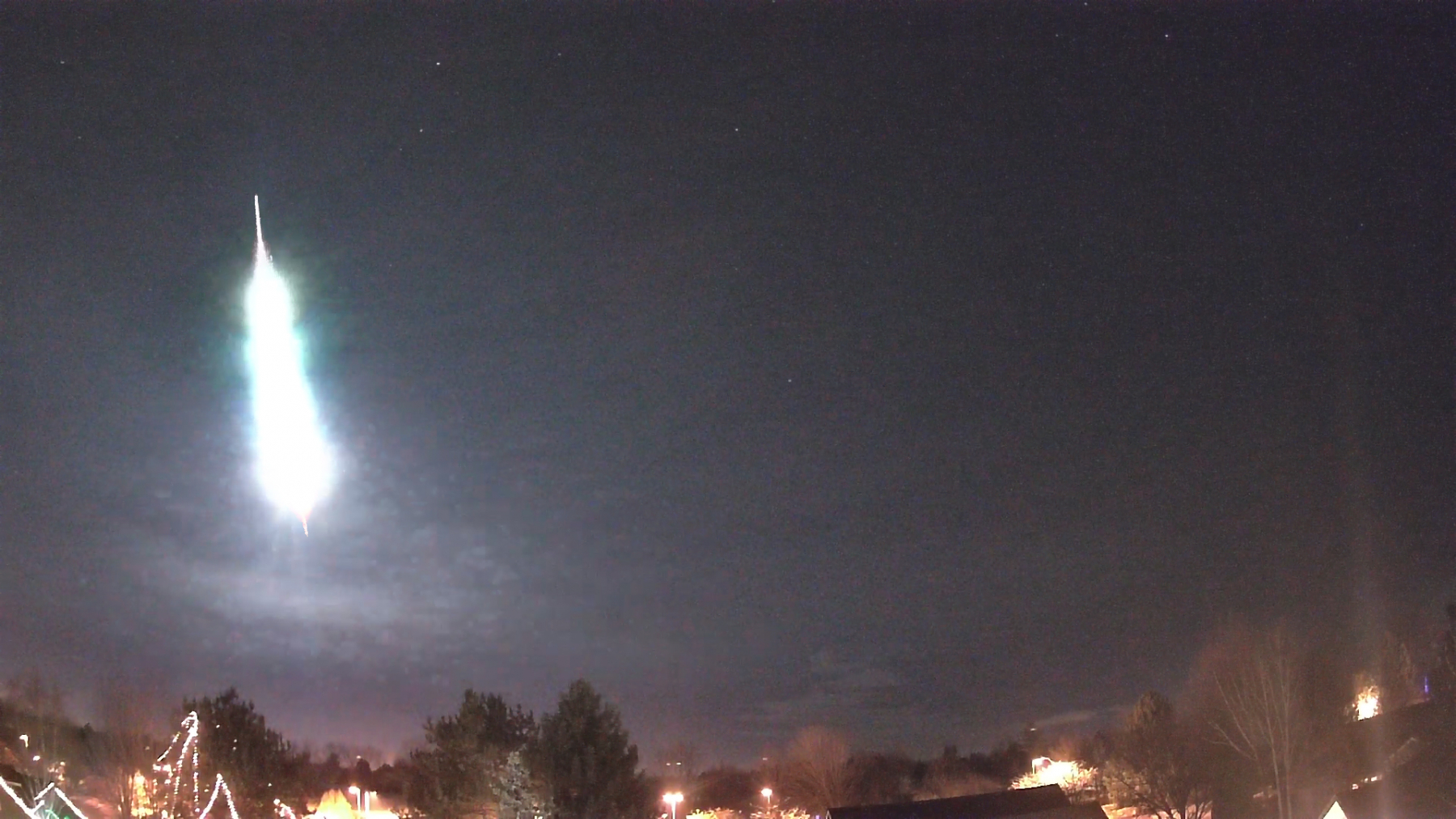
During this period, the moon reaches its first quarter phase on Tuesday February 8th. At that time the moon lies near 90 degrees east of the sun and sets near 01:00 local standard time. This weekend the waxing crescent moon will set during the early evening hours and will not interfere with meteor observing during the more active morning hours.

During this period, the moon reaches its new phase on Monday January 31st. At that time the moon lies near the sun and is invisible at night. This weekend the thin crescent moon will rise just before dawn, therefore it will not interfere with meteor observing at this time. The moon will re-enter the evening sky later this week but will set soon after dusk. Again, it will not interfere with meteor observing.
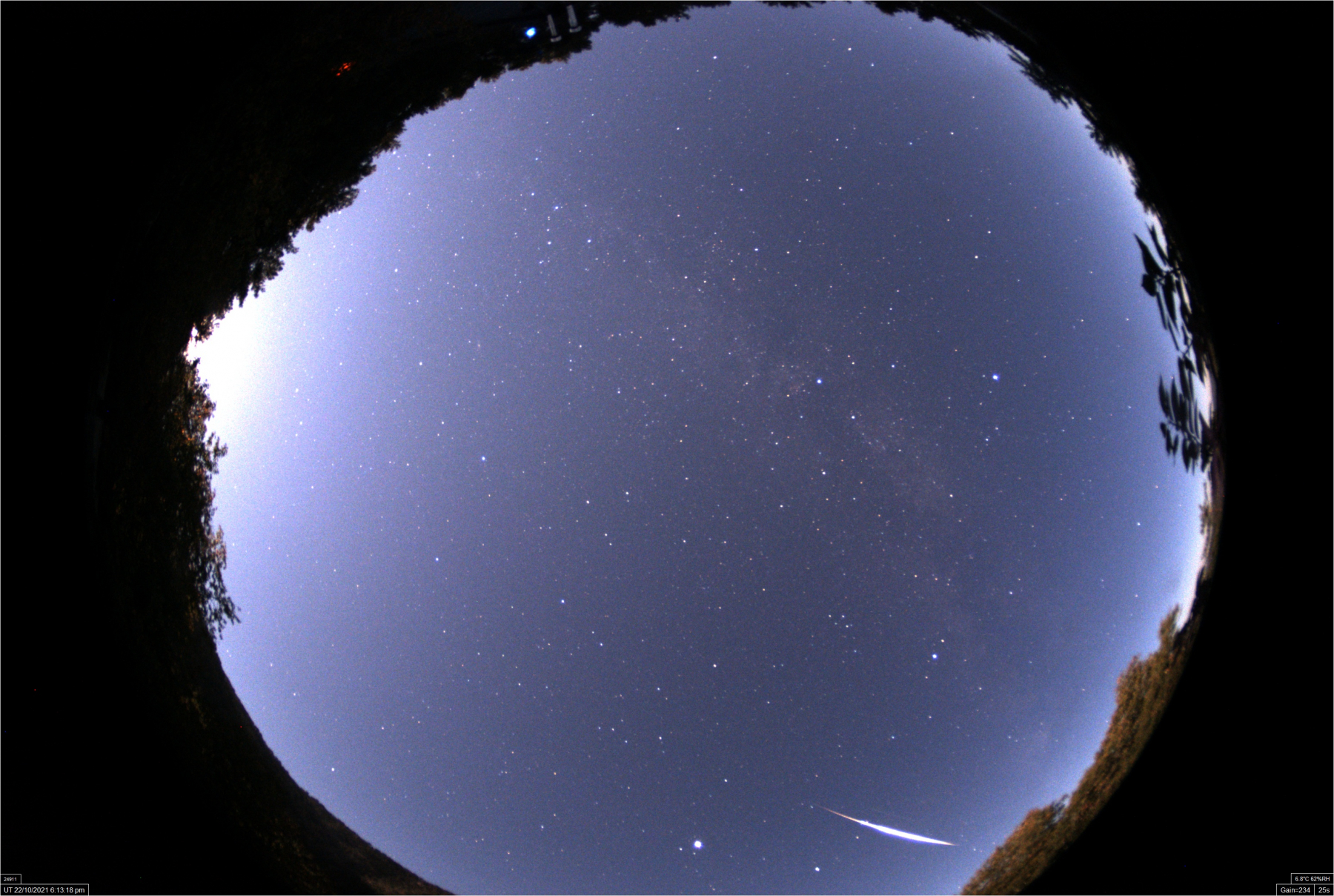
During this period, the moon reaches its last quarter phase on Tuesday January 25th. At that time the moon lies 90 degrees west of the sun and rises near midnight. This weekend the waning gibbous moon will rise during the early evening hours, spoiling the sky with intense moonlight for the remainder of the night.